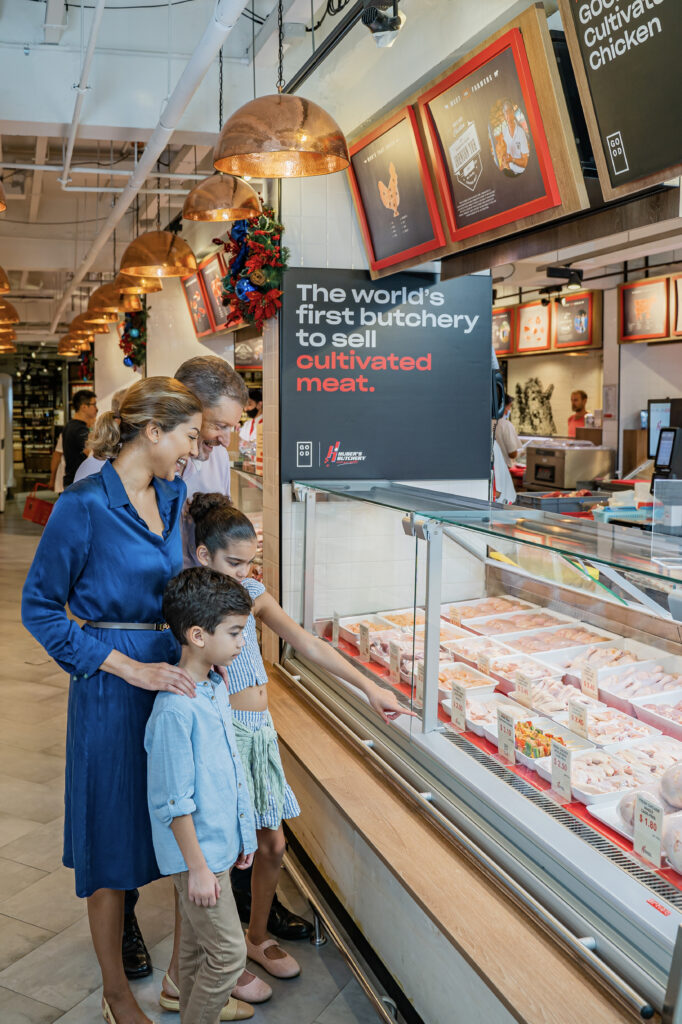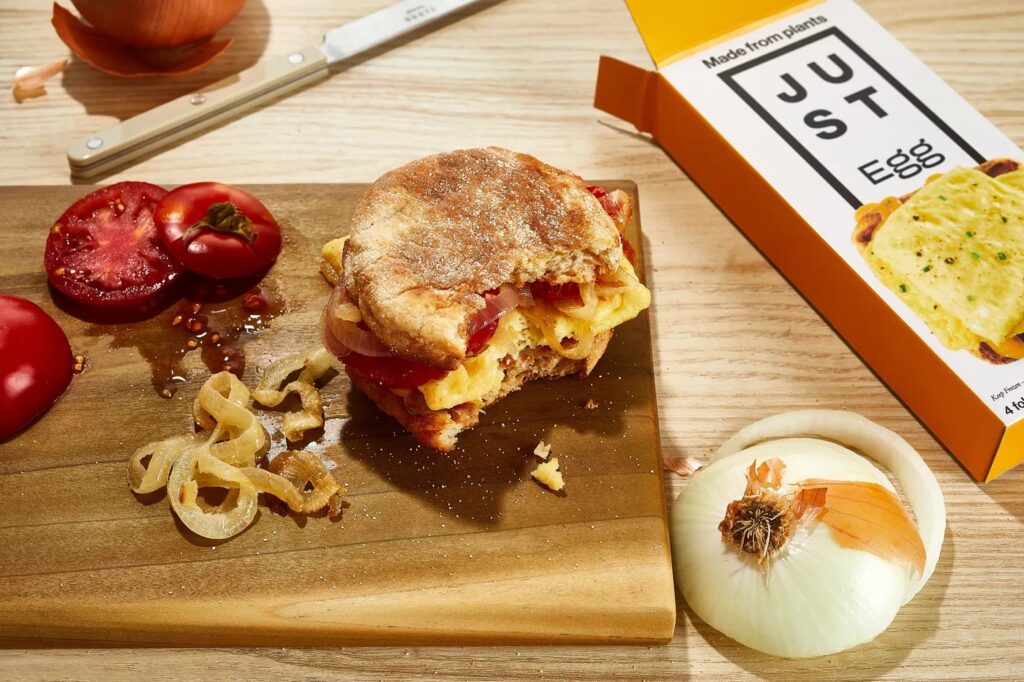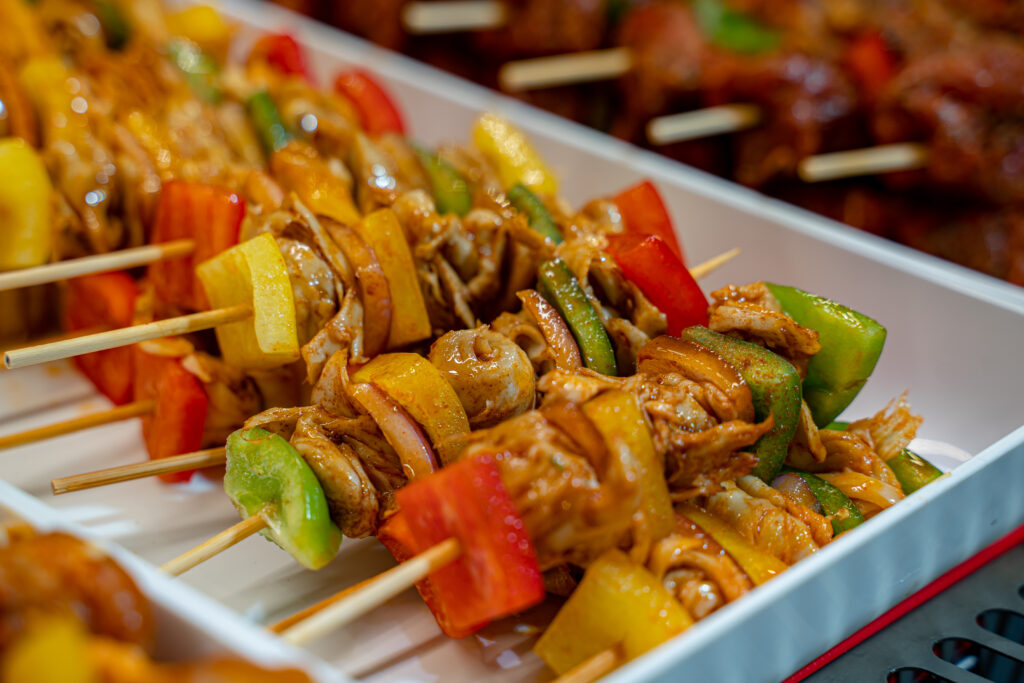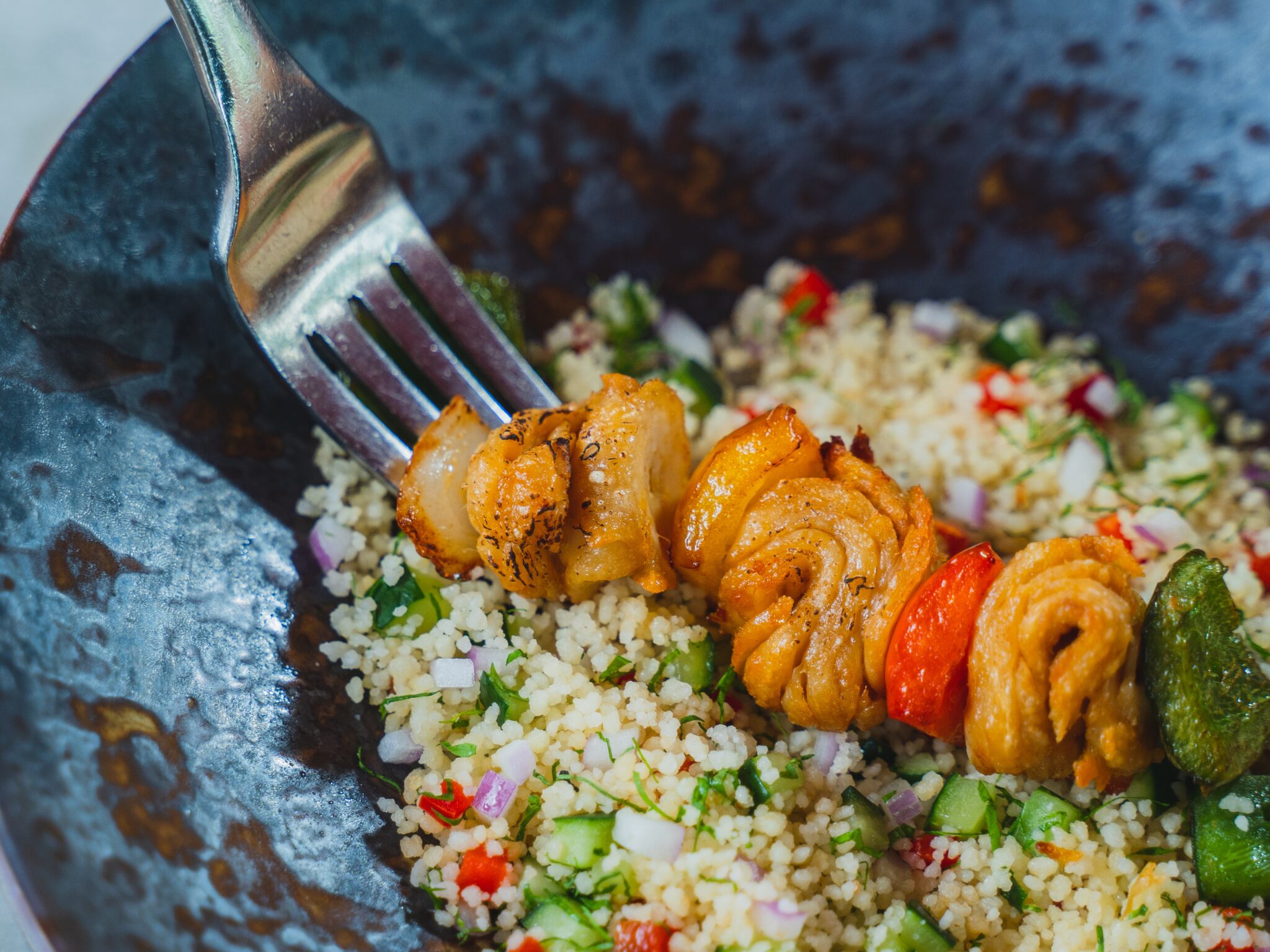Eat Just Pauses Singapore Operations – But Plans to Resume Production & Foodservice Presence ‘Very Soon’
6 Mins Read
Californian cultivated meat producer Eat Just has paused its Singapore operations, three months after Huber’s Bistro stopped selling its Good Meat chicken. But the company says this is a temporary phase, with production and service at the restaurant to resume soon.
2024 will mark the four-year anniversary of Eat Just’s historic regulatory approval for the sale of cultivated meat in Singapore. Since then, the Californian startup received clearance in the US too, and restaurants began selling its Good Meat chicken in both countries.
However, you can’t find Eat Just’s chicken – or any cultivated meat, for that matter – in restaurants anymore. In Singapore, its product is no longer available at Huber’s Bistro, which was the only restaurant offering the chicken last year.
And now, it has emerged that Eat Just has pressed pause on its operations in the island nation, with the company telling the Straits Times it’s reassessing its Asia strategy. “We’re evaluating various processing conditions, the unit economics, and a larger strategic approach to producing in Asia,” a spokesperson said.
The Singapore newspaper has revealed that Eat Just isn’t producing in Singapore at present, with the $61M Good Meat manufacturing plant in Bedok – which was slated for a Q3 2023 launch – seemingly not in operation anymore, while the $120M factory for Just Egg in the city’s Pioneer area also cancelled.
But the startup noted that its Singapore operations have never been continuous – it has always “produced and paused, and produced and paused” in the country – with the current status merely being a paused phase (as has happened previously) before it resumes operations soon.
Manufacturing facilities shuttered, but products to return ‘very soon’

The Strait Times visited Bedok Food City, the site of Good Meat’s 30,000 sq ft facility – last week, but employees from other companies in the building said Eat Just’s two units on the ground floor were closed. They added that these had rarely opened for about six months. One of the closed units had boxes full of air-purifying equipment sitting outside, and the other had benches piled up.
The newspaper said a separate commercial plant that previously manufactured Good Meat’s chicken is not producing for the company anymore either. Eat Just said there was “no firm timeline” on when the Bedok facility would be operational, but noted that its plans for this year involved producing “at least twice as much in Singapore this year than any year before”.
Eat Just had announced that it had broken ground on a plant protein facility for its vegan Just Egg product in March 2022, stating that it would take about two years to complete. But when asked about progress on this, the spokesperson said: “We are not building a facility in Pioneer.”
Meanwhile, the company indicated that Good Meat will soon be back at Huber’s Bistro, which offered the chicken as part of skewers and salads. The spokesperson said the products will return to the eatery “very soon”, once the supply is ready.
The foodservice pause isn’t just in Singapore – Good Meat used to be available at the José Andrés-owned Washington, DC restaurant China Chilcano, but the eatery passed reservations for its tasting menu featuring the cultivated chicken back in September. “The most important activities for GOOD Meat are related to process development and lowering costs long-term. We are focusing our efforts and resources on those tasks at this time,” Eat Just’s global communications director, Carrie Kabat, told Green Queen last month.
Eat Just looks to overcome challenges for a profitable 2024

Eat Just has been on the receiving end of a growing list of challenges over the last year. As the company – which has raised over $850M to date – aims for profitability in 2024, it is in the middle of multiple legal battles with suppliers and manufacturers over non-payment.
The comany has been involved in at least seven lawsuits since 2019 – and while it has settled some of them, its case with bioreactor manufacturer ABEC is still ongoing. The latter sued the alternative protein startup for $100M, which included payments for changes to the scope of the work, alongside unpaid invoices. But last month, Eat Just filed a counterclaim alleging that it was ABEC that breached contractual terms.
The Californian startup also shut down production on the facility that was going to house the ABEC bioreactors, which was announced in May 2022. Speaking to Green Queen in September, Eat Just CEO Josh Tetrick said: “In the past few years we have invested a lot of capital in the design and engineering for a large-scale cultivated meat facility, knowing we would have to raise additional capital to complete the rest of the facility.”
He added: “Because of market conditions, we found ourselves in a position where it became very challenging to raise that additional capital. At this point, we’re re-assessing how we think about a large-scale facility in a more realistic way – which will still be very challenging.”
But conversely, the company has made several strides to ensure it can break even this year. The news about its Singapore operations comes a week after Eat Just announced it had sold the equivalent of 500 million eggs since Just Egg’s launch in 2019. And in January, it relaunched its cult-favourite Just Mayo and Ranch lines.
“Challenges, doubts, and unforeseen hurdles have not stopped Eat Just from continuing to drive innovation in plant-based foods to give consumers better choices and more ways to change the food system for the better every time they sit down to a meal,” the brand told Green Queen during the launch.
Cultivated meat is still progressing in Singapore and elsewhere

It shows how it’s not all doom and gloom for cultivated meat. Kabat confirmed that Good Meat planned to resume tastings in the US this year, as did Upside Foods, the only other company to have the regulatory greenlight for cultivated meat in the US.
And as for Singapore, the country still remains a hotbed for alternative protein in Asia – it was the world’s first to approve these novel proteins for sale, and it’s now expected to grant the next clearance in the sector, with Dutch company Meatable anticipating the go-ahead by Q2. This would make it the first European startup – and first cultivated pork producer – to be allowed to sell cultivated meat anywhere in the world. France’s Vital Meat and Israel’s Aleph Farms (which is already approved in its home country) have also filed dossiers in Singapore for their products.
Additionally, last month, the Islamic Religious Council of Singapore ruled that cultivated meat can be halal under specific circumstances. It was followed by South Korea inviting applications for safety assessments of cultivated meat for regulatory approval. Meanwhile, Australia’s Vow Food has advanced into a public consultation process for its cultivated quail in Australia and New Zealand, before it will enter a 60-day review period for ministers.
“Transforming the global food system is a relay race, not a sprint,” said Mirte Gosker, managing director of alternative protein think tank the Good Food Institute APAC. “With more than 150 companies operating in the cultivated meat sector worldwide, progress is bound to come in fits and starts, as has been the case in clean energy, electric vehicles, and other emerging technologies.
“What matters most is that cultivated meat as a category succeeds, because there is no path to limiting global warming to 1.5°C without reimagining the way meat gets to our plates.”
This story was updated on March 5 to clarify that Eat Just’s Singapore operations have always been ‘campaign-style’, with the current status being a paused phase before production resumes soon.



